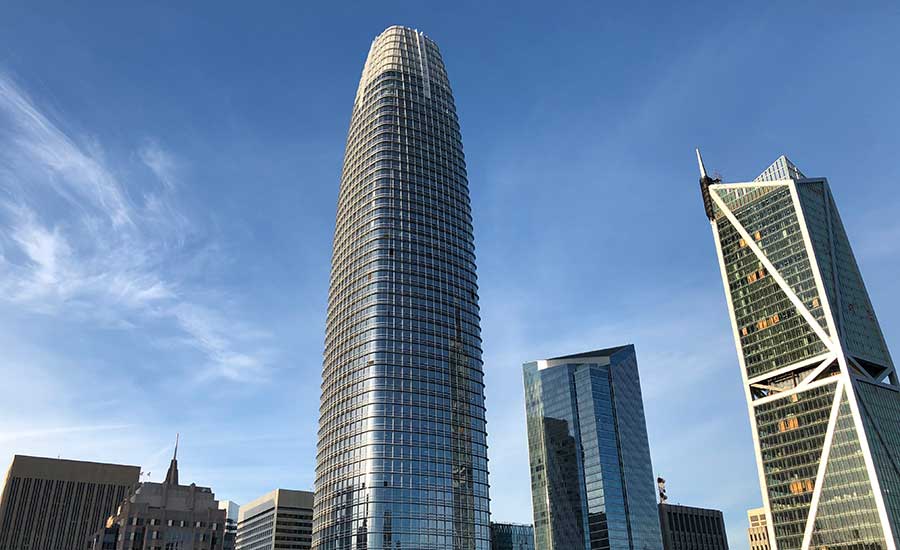All ended well this month, with the opening of San Francisco’s tallest landmark. But the 1,070-ft Salesforce Tower would not be “scraping the sky,” if not for the dogged determination of developer Paul Paradis, a managing director of Hines.
“The tower would simply not be there without Paul,” says Jay L. Paxton, a shareholder with Buchalter, a Hines law firm.
In 2007, Hines won a competition to develop the Transbay Redevelopment Plan’s centerpiece tower, viewed as a marker for a multimodal transit center at its base. But as Hines was about to ink a land-purchase deal with the Transbay Joint Powers Authority (TJPA), the Great Recession hit.
 Paul Paradis
Paul Paradis
San Francisco
ENR 9/18/17 p. 24
Visionary for Salesforce Tower, the centerpiece of San Francisco’s revival, never gave up on the difficult project, through the Great Recession and myriad other obstacles.
The deal almost died. “It was a very depressing and frenetic time,” Paradis says. “I was encouraged to look at other opportunities, but I believed in the project and couldn’t give up. It was risky for me,” because, without city approvals or an office tenant, Hines had no desire to invest capital.
When the office-market recovery began, Paradis started to rethink the deal. Hines soon proposed a smaller tower and lower land price. TJPA, though reluctant, eventually relented.
“That very difficult deal was kept alive for years by Paul’s incredible relentlessness and resilience—characteristics I have long attributed to his devotion to Ironman triathlons,” says Paxton. Fred Clarke, senior design principal for tower designer Pelli Clarke Pelli Architects, adds, “Paul’s energy, optimism, persistence and dedication … were unwavering.”
Another Hines coup was to sell 95% of the project to Boston Properties, which became the controlling developer. “The decision to partner with Boston Properties was crucial and provided strength to bring the vision to reality,” says Clarke.
The supertall survivor is 97% leased, and tenants are moving in. “The tower is the first thing you see [when you arrive in town] and the last thing you remember [when you leave],” says Bob Pester, a Boston Properties executive vice president.




